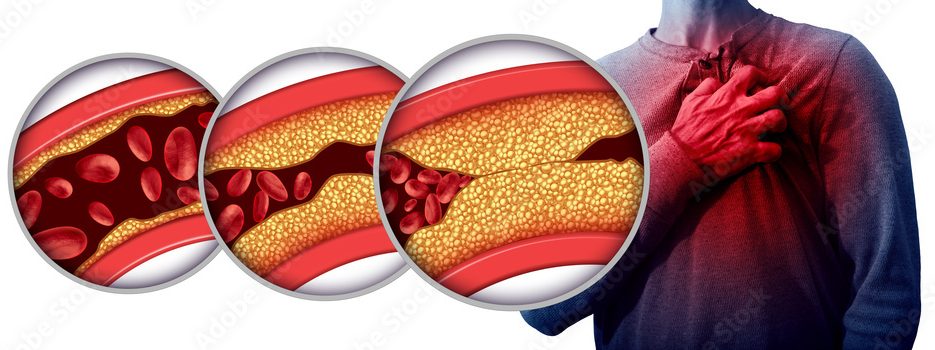


High cholesterol levels can have adverse effects on the body and increase the risk of various health problems such as heart disease, stroke, and peripheral arterial disease. However, recent studies have also linked high cholesterol levels to other health problems such as headaches and dizziness. In this article, we will explore the relationship between high cholesterol and headaches and dizziness. We will also learn about “Can High Cholesterol Cause Headaches and Dizziness”.
Cholesterol is a waxy, fat-like substance found in the blood that plays an essential role in building and maintaining cell membranes, producing hormones, and digesting fat. The liver produces cholesterol, and it is also present in some foods. There are two types of cholesterol, LDL (low-density lipoprotein) or “bad” cholesterol, and HDL (high-density lipoprotein) or “good” cholesterol.

LDL cholesterol can build up in the walls of arteries and form plaques, leading to a condition called atherosclerosis, which can restrict blood flow to organs and tissues. High cholesterol levels, particularly high levels of LDL cholesterol, can increase the risk of various health problems such as heart disease, stroke, and peripheral arterial disease.
High cholesterol levels are a common health concern and have some association to various negative effects on the body. However, recent research suggests that high cholesterol levels may also be associated with headaches and dizziness. In this article, we’ll discuss the potential causes of these symptoms and strategies for managing high cholesterol levels to reduce the risk of related health problems.
Headaches are a common condition that can be caused by various factors. These includes: stress, lack of sleep, dehydration, or an underlying health condition. Recent studies have shown that there may be a link between high cholesterol levels and headaches, particularly migraines.
A study published in the journal Headache found that individuals with high total cholesterol levels were more likely to experience migraines than those with normal cholesterol levels. Additionally, the study found that individuals with high LDL cholesterol levels had a higher incidence of migraines than those with normal LDL cholesterol levels.
The exact mechanism behind the link between high cholesterol levels and migraines is not fully understood. However, it is believed that the buildup of plaque in the arteries can reduce blood flow to the brain, leading to headaches. Additionally, high cholesterol levels can cause inflammation, which can also contribute to headaches.
So, here is the perfect answer to the question “Can high cholesterol cause dizziness?“. Dizziness is a feeling of lightheadedness, unsteadiness, or vertigo. It can be caused by various factors such as low blood pressure, inner ear problems, or medication side effects. Recent studies have shown that high cholesterol levels may also be a contributing factor to dizziness.
A study published in the Journal of General Internal Medicine found that individuals with high cholesterol levels were more likely to experience dizziness than those with normal cholesterol levels. The study also found that the risk of dizziness increased with higher levels of LDL cholesterol.
The underlying mechanism behind the link between high cholesterol levels and dizziness is not fully understood. However, it is saying that the buildup of plaque in the arteries can reduce blood flow to the brain, leading to dizziness. Additionally, high cholesterol levels can cause inflammation, which can also contribute to dizziness.
Finally, after reading the above evidences, we got the answer that “Yes, High cholesterol cause dizziness“.
If you are experiencing headaches or dizziness and have high cholesterol levels, it is important to take steps to manage your cholesterol levels. This can include making lifestyle changes such as:
It is important to talk to your doctor before making any significant changes to your lifestyle or starting any new medication. Your doctor can help you develop a personalized plan to manage your cholesterol levels and reduce the risk of headaches, dizziness, and other health problems associated with high cholesterol.
Your legs are far away from your heart, so they risk developing complications from high levels of cholesterol and numbness. There is scientific backing for high cholesterol numbness of your legs or Peripheral Artery Disease (PAD). PAD occurs when your legs’ arteries get narrower due to fat build-up from high cholesterol levels.
In addition, PAD causes numbness and tingling in your legs or feet. Numbness or sensation loss increases your risk of ulcers and other slowly healing wounds. Leg pain that may feel like muscle cramps, especially when you engage in physical activity, is a common symptom of PAD.
After learning about “Can High Cholesterol Cause Headaches and Dizziness“, we will continue to learn some other health problems that can cause headache and dizziness. Headaches and dizziness can take place due to a variety of health problems, some of which may be serious. Here are some other health problems that may give raise to headaches and dizziness:
High cholesterol levels can increase the risk of various health problems, including heart disease, stroke, and peripheral arterial disease. Recent studies have also linked high cholesterol levels to headaches and dizziness, particularly migraines and vertigo. The exact mechanism behind this link is not fully understood, but it is believed that the buildup of plaque in the arteries and inflammation can contribute to these symptoms.
Related Public Search For:
Can cholesterol cause dizziness | high cholesterol dizziness | could high cholesterol cause dizziness | high cholesterol cause dizziness | would high cholesterol cause dizziness
Read Also:
What are early warning signs of thyroid problems?
Hypothyroidism and High Blood Pressure: Causes, Symptoms, and Treatment